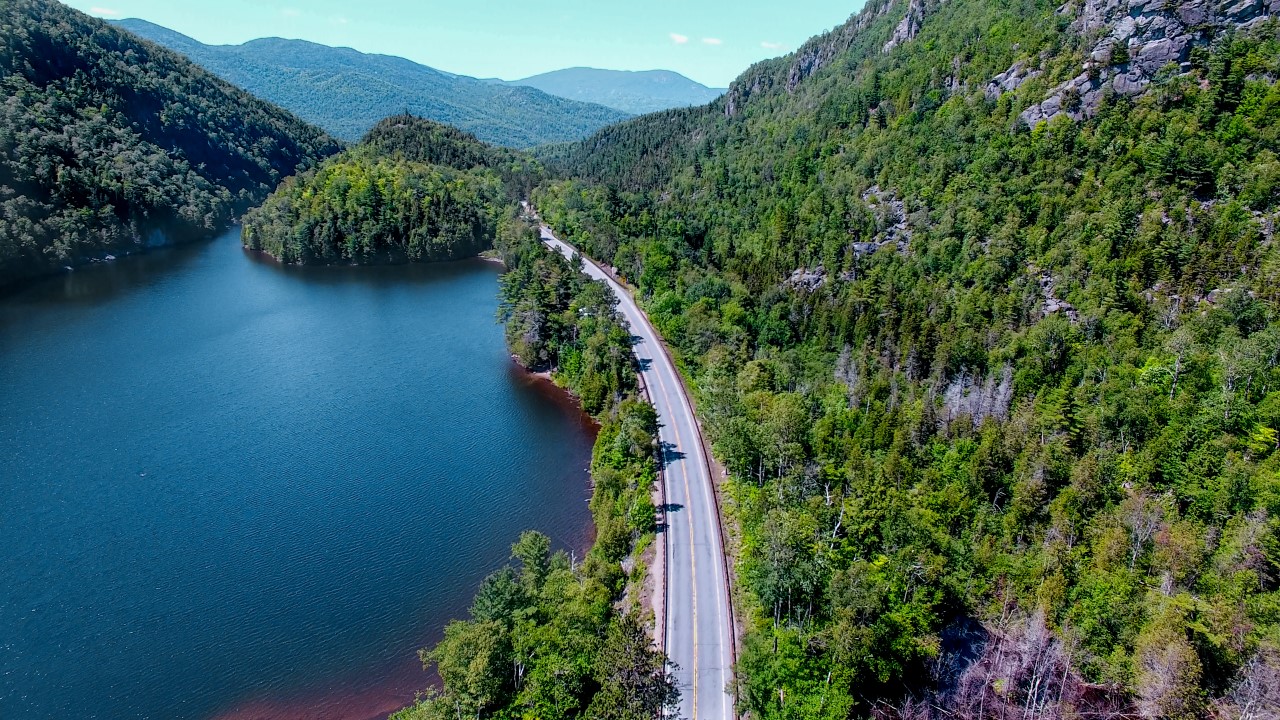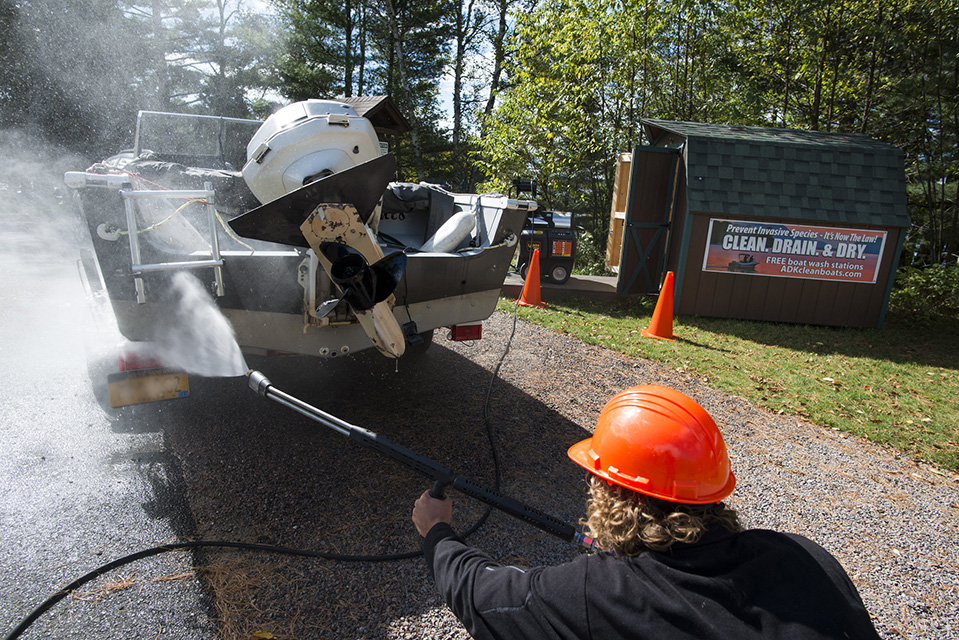
What's Next for the Adirondacks? | The 2019 New York State Legislative Session
By: Julia Champagne - Adirondack Council Clarence Petty Intern
Tuesday, June 11, 2019
The 2019 New York State Legislative Session is rapidly coming to a close, and the Capitol is buzzing with activity. This is a time when legislators are pushing to get bills passed before the scheduled end of the legislative session on June 19th. It’s also an important time to remember what a treasure the Adirondack Park is and consider how it could be better protected through legislation. Here are some top priority issues the Adirondack Council is working hard on, with partners, in the home stretch:
Climate Change
The debate is over: climate change is real and presents an immense threat to our children, planet Earth, and the Adirondacks. It must be dealt with immediately, to preserve our Adirondack Park’s legacy, clean drinking water, rare wildlife, wilderness, and communities. With the absence of environmental leadership in Washington D.C., New York could be leading the way. The Legislature’s proposed Climate and Community Protection Act (CCPA) and the Governor’s proposed Climate Leadership Act (CLA) present two of the strongest climate policy proposals in existence. The Adirondack Council and others are calling on elected leaders to merge the best of these two proposals together and secure a climate victory this year. Learn more and send Governor Cuomo and your legislators an email asking them to approve strong climate legislation before the 2019 legislative session comes to an end.
 Photo: Nick LaScala, Social Media & Photography Intern
Photo: Nick LaScala, Social Media & Photography Intern
Adirondack Park Agency Board Appointments
With three board vacancies and an additional three board members serving on expired terms, the Governor and the Senate have a great opportunity to shape the Adirondack Park Agency for years to come. The Council has been educating stakeholders about the crucial responsibility APA board members have to uphold the spirit and intent of the Adirondack Park Agency Act. The Senate is responsible for approving the governor’s appointments to the Adirondack Park Agency board. We support filling the seats with new and returning board members who together bring a necessary diversity of professional expertise to the board including strong leaders with experience and expertise in environmental law, land use planning, and environmental science.
Conservation Development
The Adirondack Council has been working with private landowners, local government officials, other environmental organizations, and legislators to create a bill that would ensure that large-scale development is more protective of open space and wildlife in the Adirondack Park. The goal is for new development to be more densely clustered, thereby preserving ecological integrity and more open space on the most sensitive backcountry lands in the Adirondacks. Open space makes the Adirondack Park special because it provides a forested rural landscape aesthetic and room for wildlife to thrive. Bill A8123 was introduced by Assemblyman Steve Englebright to accomplish this goal. The Council is working hard to see it approved by the end of session.
Health and Safety Land Account Authorization
An amendment to the state constitution that authorized a Forest Preserve Health and Safety Land Account, was approved by voters in 2017 but requires final legislative action by the legislature to go into full effect. The amendment allows municipalities to use small amounts of Forest Preserve land to do projects such as bridge repairs and road improvements. The Adirondack Council is looking forward to its passage, which will mark a victory for Adirondack communities with critical infrastructure needs.
Boat Washing
As highlighted in a recent blog post, the Adirondack Council supports strengthened protections against invasive species and mandatory boat washing in the Adirondack Park because it is the only way to ensure that boats are not contaminated when they enter Adirondack waterways. The only existing law addressing aquatic invasive species expired on May 31st. Luckily, a bill passed last week to renew the law for one year. The Council is happy to see that Environmental Conservation Committee Chairmen Todd Kamisky and Steve Englebright have stated that in the coming year they will work to strengthen boat washing laws.
All-Terrain Vehicle (ATV) Misuse
A report released in April shows that Forest Rangers claim illegal ATV misuse has been the most problematic activity on state lands for decades. The report details the harmful impacts ATVs can have, such as erosion and wildlife disruption. The Adirondack Council’s proposed solution is to generally prohibit (with a few exceptions) ATVs from Forest Preserve lands and other ecologically sensitive areas in the Albany Pine Bush and Long Island Pine Barrens, while providing riding alternatives. Senator Todd Kaminsky and Assemblyman Steve Englebright introduced bills (S. 5836/A. 7537) which would accomplish this.
ATVs can be dangerous for riders’ safety as well. A current bill (S. 5035/A. 6097) sponsored by Senator Harckham and Assemblywoman Paulin would increase the minimum age for riding an ATV on public lands, which currently is as young as 10. This bill has moved in the Assembly, and we hope the Senate will match this effort and pass this bill to make ATV use safer for all.
 Photo: Jason Pan
Photo: Jason Pan
Road Salt
The state’s application of road salt has become a threat to ecosystems and drinking water supplies in the Park. Excess road salt negatively affects aquatic habitats, and in some places, Park residents have noted adverse health effects after contamination of their drinking water. The Council has been working with legislators to get a bill introduced on the issue. Legislators have been receptive to the idea and appreciate the need to bring attention to such an important health and environmental issue.
The Adirondack Council and partners work in coalitions to advance these priorities that, if approved, will help preserve the ecological integrity and wild character of the Adirondack Park. At the same time, the Council monitors and works in opposition to a wide range of proposals that would weaken legal and other protections for clean water, clean air, wildlands, and public health. The Council thanks all its partners, supporters, and policymakers who help.

Julia Champagne is the Adirondack Council’s Clarence Petty Intern in our Albany office for this legislative session. She grew up in Glenmont, New York, enjoying trips to the Adirondacks to hike, camp and kayak. Julia graduated from Cornell University in 2018 with a Bachelor of Science in Environmental and Sustainability Sciences. During her internship, Julia will be tracking news media and legislation, and assisting the other government relations staff advance Adirondack issues in the state legislature.





